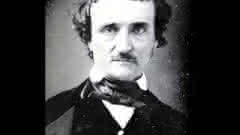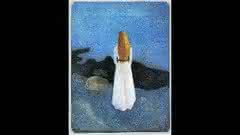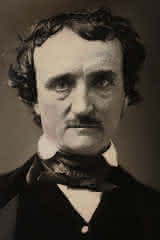Annabel Lee, de Edgar Allan Poe | Poema
Poema en español
Fue hace muchos, muchos años,
en un reino junto al mar,
que vivió una doncella a quien ustedes quizá conozcan
por el nombre de Annabel Lee;
esta señorita vivía sin ningún otro pensamiento
más que amar y ser amada por mí.
Era una niña y yo un niño,
en este reino junto al mar,
mas amábamos con un amor que era más que cualquier amor—
yo y mi Annabel Lee—
Con un amor que los serafines alados del cielo
codiciaban, de ella y de mí.
Y esta fue la razón por la que, hace tiempo,
en este reino junto al mar,
un viento sopló de una nube, helando
a mi hermosa Annabel Lee;
de tal modo que sus parientes de alta cuna vinieron
y se la llevaron lejos de mí,
para hacerla callar, en un sepulcro
dentro de este reino junto al mar.
Los ángeles, ni la mitad de felices en el cielo
se volvieron envidiosos de ella y de mí—
¡Sí! esta fue la razón (como todos los hombres saben,
en este reino junto al mar)
por la que el viento surgido de esa nube en la noche,
heló y mató a mi Annabel Lee.
Pero nuestro amor era mucho más fuerte que el amor
de esos quienes fueron más viejos que nosotros—
de mucha más sabiduría que nosotros—
y ni los ángeles allá arriba, en el cielo
ni los demonios bajo el mar
podrán nunca separar mi alma del alma
de la hermosa Annabel Lee;
Pues la luna jamás brilla, sin traerme sueños
de la preciosa Annabel Lee;
Y las estrellas nunca saldrán, pero veo el brillo de ojos
de la bella Annabel Lee;
Y así, durante la marea en la noche me acuesto al lado
de mi querida— mi adorada— mi vida y mi esposa,
en su sepulcro junto al mar—
en su tumba al lado del resonante mar.
Poema en el idioma original
It was many and many a year ago,
in a kingdom by the sea,
that a maiden there lived whom you may know
by the name of Annabel Lee;
and this maiden she lived with no other thought
than to love and be loved by me.
I was a child and she was a child,
in this kingdom by the sea,
but we loved with a love that was more than love—
I and my Annabel Lee—
with a love that the wingèd seraphs of Heaven
coveted her and me.
And this was the reason that, long ago,
in this kingdom by the sea,
a wind blew out of a cloud, chilling
my beautiful Annabel Lee;
so that her highborn kinsmen came
and bore her away from me,
to shut her up in a sepulchre
in this kingdom by the sea.
The angels, not half so happy in Heaven,
went envying her and me—
yes!—that was the reason (as all men know,
in this kingdom by the sea)
that the wind came out of the cloud by night,
chilling and killing my Annabel Lee.
But our love it was stronger by far than the love
of those who were older than we—
of many far wiser than we—
and neither the angels in Heaven above
nor the demons down under the sea
can ever dissever my soul from the soul
of the beautiful Annabel Lee;
For the moon never beams, without bringing me dreams
of the beautiful Annabel Lee;
and the stars never rise, but I see the bright eyes
of the beautiful Annabel Lee;
and so, all the night-tide, I lie down by the side
of my darling—my darling—my life and my bride,
in her sepulchre there by the sea—
in her tomb by the sounding sea.
Edgar Allan Poe (Boston, 1809- Baltimore, 1849) está considerado como el padre del relato detectivesco moderno y el gran transformador de la narrativa fantástica y de terror, que gracias a sus cuentos pasó de la atmósfera gótica de finales del siglo XVIII a la profundidad psicológica que se le atribuye al género en su edad moderna. Poeta, ensayista, crítico, periodista y narrador superdotado, Poe es conocido universalmente por un conjunto de textos —poemas como El cuervo, su única novela La narración de Arthur Gordon Pym y sus relatos sobrenaturales y de misterio— que supusieron la puerta de entrada de la literatura occidental tanto al simbolismo y el surrealismo como al género pulp. Los dominios de Arnheim es uno de los textos más singulares, a la vez que poco leídos, de este maestro del relato fantástico norteamericano.







